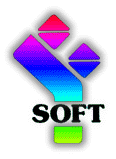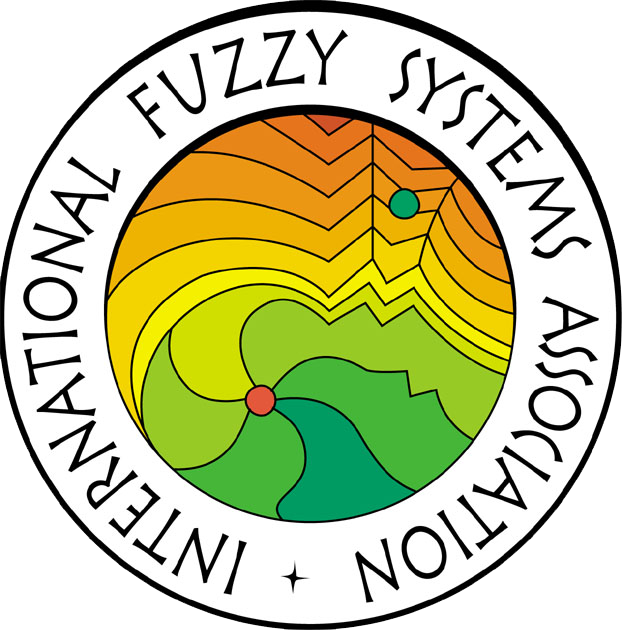Call for Organized Session Proposals
We would like to invite you to submit your organized session proposals. Interested organizers should prepare a proposal which includes:
- Session title
- Organizer(s) (name, affiliation and E-mail address)
- List of at least four (4) papers (tentative titles and their authors), or short description (100 words abstract)
- Presentation style: "oral" or "interactive"
- Please note that all presentations in an organized session should have the same presentation style. If there is any discrepancy between the organizer and the presenters, the organizer's choice takes priority over the presenters' choice.
Please send it to scisisis2020+os@gmail.com.
Interactive session
Interactive session is a presentation format newly established on the organized session in SCIS&ISIS2020. First, an oral presentation will be given, and after that, Q&A will be held in front of a poster. The interactive Q&A section enables deeper discussions. The procedure for conducting an interactive session is as follows.
- Organized session proposers select "Interactive" at OS proposal. The papers in the interactive sessions will be treated as oral presentations.
- Authors may request their preference from Full or Short paper.
- Each author should prepare both oral presentation for 5-8 minutes and a poster. The specifications of the poster are the same as the poster session.
Demonstration is also possible in front of the poster (The demonstration is optional).
Instructions for organized session organizers and authors
- Each paper in an organized session should be written in A4 paper format with the IEEE style (please see Paper Submission page).
- Each organized session contains typically 4 papers. Session organizer is in charge of review process for the papers in his/her organized session.
- The session organizer manages that all the final manuscripts in his/her organized session are submitted not later than camera-ready paper due.
Approved Organized Sessions
| OS-01 |
Masahito Kurihara (Hokkaido University, Japan) Satoshi Oyama (Hokkaido University, Japan)
TBA
|
| OS-02 |
Yusuke Nojima (Osaka Prefecture University, Japan) Shinji Fukuda (Tokyo University of Agriculture and Technology, Japan) Jose Maria Alonso (University of Santiago de Compostela, Spain)
Explainable artificial intelligence (XAI) is a hot topic in science and a big tool for many applications of predictive machine learning methods. Various approaches have been developed and applied in order to understand why predictive models such as deep learning performs well on a given task. This session calls for papers in both theory and applications of machine learning methods with specific focus on model interpretability, explainability and accountability. Our purpose is to gather not only approaches to open the black box models but also approaches to improve/extend interpretable/explainable models like rule-based and decision tree-based ones.
|
| OS-03 |
Hiroyuki Masuta (Toyama Prefectural University, Japan) Takenori Obo (Tokyo Polytechnic University, Japan)
Recently, various types of robots have been developed to realize assistance to people and natural communication with people, e.g., childhood education, elderly care, daily life assistance, and rehabilitation support. Such robots integrate various information including internal and external sensors. Furthermore, a robot can be defined as intelligent and human friendly system that can be applied in environments coexisting with human. Computational intelligence including neural computing, fuzzy computing, and evolutionary computing can be applied for the assistance and service to people in the intelligent systems. In this session, we will discuss the state-of-the-art of methodology for robot system integration in human life in terms of various applications.
|
| OS-04 |
Yasuo Kudo (Muroran Institute of Technology, Japan)
Recently, rough sets and granular computing are recognized as the new paradigm of computing, and attract the attention of researchers coping with data mining, knowledge discovery, pattern recognition, decision analysis, soft computing, Kansei engineering, etc. In this session, we focus on the recent progress of rough sets and granular computing, and exchange the new results and the ideas toward the future developments in this research area. Not only papers on rough sets, granular computing and their applications but also papers in the related area are welcomed.
|
| OS-05 |
Noboru Takagi (Toyama Prefectural University, Japan) Hironobu Takano (Toyama Prefectural University, Japan) Tatsuo Motoyoshi (Toyama Prefectural University, Japan)
TBA
|
| OS-06 |
Makoto Fukumoto (Fukuoka Institute of Technology, Japan) Jun-ichi Imai (Chiba Institute of Technology, Japan) Yoshiko Hanada (Kansai University, Japan)
Interactions of human and computer are naturally performed in various situations nowadays, and both of the development of information technology and the proposals of new ideas in the research area of the interaction contributes to establishing a comfortable society. Because of there are various applications of the interaction, intelligent functions in computer side are demanded further. Additionally, new applications of the interaction should be discussed. This session treats wide range of topics of the interaction related to welfare, media design, interface, affective engineering, cognition, etc.
|
| OS-07 |
Takamasa Akiyama (Kansai University, Japan)
The eleventh organized session will be held in application of soft computing to urban and transport planning since 2000. The soft computing techniques such as fuzzy logic and neural network have been applied to the problem of urban and transport planning for many years. Furthermore, the he deep learning and artificial intelligence have been applied in the recent years. The session will discuss many types of techniques relating with machine learning approach. On the other hand, the estimation of urban systems and evaluation of transport systems might be essential problem in urban and transport planning in the real world. The advanced information processing in future smart social system would be recommended.
|
| OS-08 |
Tomohiro Yoshikawa (Suzuka University of Medical Science, Japan) Tsuyoshi Nakamura (Nagoya Institute of Technology, Japan) Masayoshi Kanoh (Chukyo University, Japan)
This special session aims at discussing the basic principles and methods of designing intelligent interaction with the bidirectional communication based on the effective collaboration and symbiosis between the human and the artifact, i.e. robots, agents, computer and so on.
We aims at encouraging the academic and industrial discussion about the research on Human-Agent Interaction (HAI), Human-Robot Interaction (HRI), and Human-Computer Interaction (HCI) concerning Symbiotic Systems. Reflecting the fact that this society covers a wide range of topics, in this session we invite the related researchers from a variety of fields including intelligent robotics, human-machine interface, Kansei engineering and so on.
Topics of interest include, but are not limited to theory and application of:
|
| OS-09 |
Tomohiro Yoshikawa (Suzuka University of Medical Science, Japan) Kei Ohnishi (Kyushu Institute of Technology, Japan)
The proposed session welcomes researches on any combinations of evolutionary computation (EC), humans, and machine learning (ML). Interactive EC, which uses a human or humans as a fitness function in EC and enables us to optimize targets that only humans can judges their qualities, is an example of combinations of EC and humans. Model-based EC, which estimates a distribution of solution candidates of an optimization problem by machine lerning techniques and utilizes the estimated distribution for searching, is an example of combinations of EC and ML. Not just to these, any combination researches of those and even pure researches of EC are welcomed.
|
| OS-10 |
Takeshi Matsui (Gunma University, Japan) Antonio Oliveira Nzinga Rene (Toyama Prefectural University, Japan)
The increasing importance of extracting useful information from data satisfying a set of constraints is highly evident nowadays. This fact is proved through the number of studies related to visualization of information from text data accumulated in cyberspace communities, classification and identification of lifelog data useful for evaluation of the quality of life (QoL), prediction of data related to prices updated frequently in financial markets, efficient generation and analysis of vast pseudo-data for production planning, and use of regional demographic data for management optimization. In this session, we will discuss novelties on research related to specific data collection techniques and theories of applicable methods. We invite papers from academicians, researchers, and business people for oral presentation.
|
OS-11 |
Shino Iwashita (Tokyo University of Technology, Japan) Muneyuki Unehara (Nagaoka University of Technology, Japan)
Affective/Kansei information processing has been developed to enhance the ability of humans with different values. It is important to treat Kansei and individual differences to provide systems and services respond to the various requirements. In this session, we focus on the applications on affective/Kansei information processing and its interactive approach. This session welcomes researches on the evaluation of Kansei and individuality, the acquisition of Kansei and individuality, the interactive/bidirectional approach between human and the system introducing learning and adaptation.
|
OS-12 |
Shinichi Yoshida (Kochi University of Technology, Japan) Yukinobu Hoshino (Kochi University of Technology, Japan)
Analysis of human behavior, brain, and health becomes important to design future human-oriented systems. Recent development of data science techniques including machine learning such as deep neural networks enables us to analyze and discover complicated and unseen relationship among data obtained by human sensors, cameras, medical devices and so on. These novel discovery will be used for the future systems design which are more oriented to human. This organized session is intended to discuss various kinds of human data analysis and new results and welcomes for submission of interesting studies.
|
| OS-13 |
Yukihiro Hamasuna (Kindai University, Japan)
Clustering is one of the most strong and important tools in many fields such as data mining, machine learning, and pattern recognition. These days, big data have attracted interest of many researchers because the data have many significant and useful knowledge implicitly. For finding such knowledge from the data, many clustering algorithms have been proposed with new methodologies such as noise rejection, EM algorithm, rough sets theory, co-clustering, network clustering, and cluster validity, and developed into various applications including text mining, community detection, recommendation system and so on. In this special session, leading-edge works of clustering and its fusion of other methodologies will be described and discussed.
|
| OS-14 |
Kanta Tachibana (Kogakuin University, Japan) Kazunori Uruma (Kogakuin University, Japan) Eckhard Hitzer (International Christian University, Japan)
During the first two decades of the 3rd millennium, Clifford geometric algebras have emerged as a universal tool for all branches of science, technology and engineering. Optimized software development across all platforms has become available with powerful payoffs for geometric intuition, efficiency, speed, adaptability, unified data representation, holistic computing, elegance of expression, etc.
The SICE working group on Applications of Clifford Algebra (chaired by Prof. Kanta Tachibana) therefore initiates the special session Modern Applications of Clifford Algebra (MACA) at SCIS&ISIS2020. We invite original contributors in the form of short, full and extended papers, which advance the state-of-the-art of the application of geometric algebra as well as of its computing technology in topics related, but not limited to:
|
| OS-15 |
Jin-Woo Jung (Dongguk University, Korea) |




